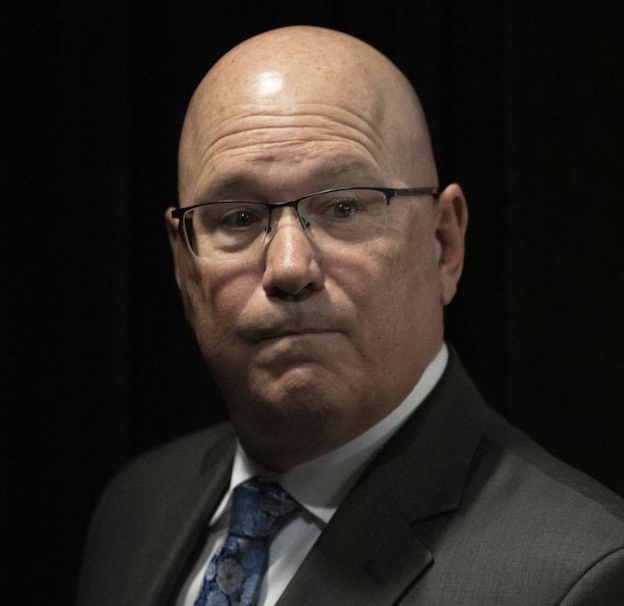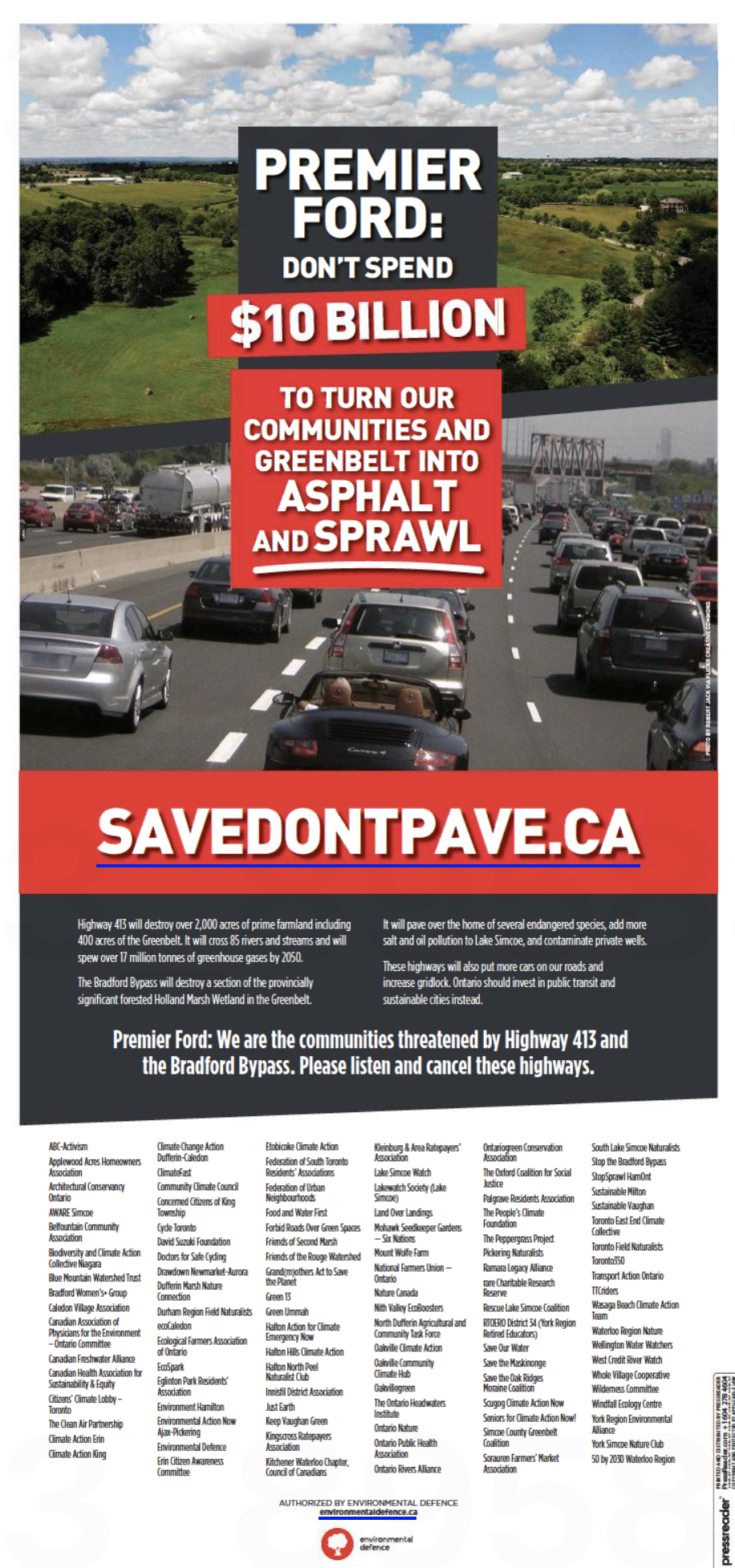The absurd and perverse decision by Doug Ford and the detached former Municipal Affairs and Housing Minister, Steve Clark, to allow development on ex-Greenbelt land at Bathurst in King (and elsewhere) should be challenged in the Courts. (Photo right: Clown-in-Chief Steve Clark)
I’d like to see York Regional Council do this.
The City of Hamilton is already testing the waters. And environmental groups are taking the plunge, asking the Courts to intervene.
Prime Agricultural Lands
The prime agricultural lands at Bathurst, bought by Michael Rice on 15 September 2022, were never earmarked for development in King’s Official Plan nor York Region’s Official Plan.
It seems to me, M’Lud, that Mr Ford acted unreasonably by allowing Minister Steve Clark’s Chief of Staff, Ryan Amato, to decide which Greenbelt lands should be opened-up for development.
Both Ford and the clown, Steve Clark, say they were kept completely in the dark and didn’t know what Amato was doing in their name.
Reasonableness
A Judicial Review would allow the Courts to test the reasonableness of the Government’s decision to press ahead with the development of lands removed from the Greenbelt in December 2022.
The Courts will decide whether the actions of the decision makers (in this case the Provincial Government) were, in all the circumstances, “reasonable”. Ontario's guide to Judicial Review says this:
A reasonable decision is “based on internally coherent reasoning” and is justified in light of the facts and law that constrain the decision-maker. Where a decision-maker has provided reasons, those will guide the Court’s review. The reasonableness standard recognizes that there may be more than one reasonable interpretation or more than one reasonable possible result. On this standard, courts will not interfere with decision they consider reasonable, even if the judges themselves might have come to a different decision
When a court applies the reasonableness standard, the person applying for judicial review has to persuade the court that the decision was unreasonable. A court will find that a decision is unreasonable if there are any fatal flaws in its overall logic or if it does not respect the factual and legal constraints on the decision. Those constraints include the evidence, the relevant law, the issues before the court as framed by the parties, the parties’ arguments, past practices, and the effect of the decision.
Procedural Fairness
The Courts will also look at procedural fairness, the nature of the decision being made and the process followed in making it.
The Auditor General tells us that public comments on the proposed removals from the Greenbelt were not considered. That doesn’t sound reasonable to me. The Courts have held that the public should be meaningfully consulted and have input to the policy and legislative process. In this case the public consultation was a complete sham. 
And is it reasonable to approve the development of ex-Greenbelt land when no-one knows how the lands are to be serviced and whether any costs will fall on residents of King or Newmarket?
Sidelined. Abandoned. Flawed.
When she released her withering special report on the changes to the Greenbelt on 9 August 2022 the Auditor General said:
“Our review of the procedures used to amend the Greenbelt boundary in 2022 raises serious concerns about the exercise used, the way in which standard information gathering and decision-making protocols were sidelined or abandoned and how changes to the Greenbelt boundaries were unnecessarily rushed through…
We found that the reasoning for the Greenbelt changes was just as flawed as the selection process itself….And, finally, given that both the premier and the housing minister communicated to us that they were unaware that the 2022 pre-selection of Greenbelt lands for removal was biased and flawed, we recommended that the government revisit the particular lands site selections that were made to adjust the Greenbelt boundaries now that it has the benefit of the information contained in this report.”
So the whole exercise was flawed right from the beginning.
And yet Newmarket-Aurora’s MPP, the metronomic Dawn Gallagher Murphy, mindlessly repeats the Ford line:
“The government... requires that new home construction begin on these lands no later than 2025, with significant progress on approvals and implementation achieved by the end of 2023.”
Seems to me that “significant progress” is increasingly unlikely.
There is a whole stack of reasons why York Region should go for a Judicial Review. And without delay.
There's a Council meeting coming up on 28 September 2023.
Go for it.
Elsewhere… On 13 September 2023 the new Municipal Affairs and Housing Minister, Paul Calandra, asked the Standing Committee on Infrastructure, Heritage and Cultural Affairs to take on the work of assessing regional government structures in Durham, Halton, Niagara, Simcoe, Waterloo & York. I'm told that as of today:
At this time the Committee has not determined whether or how to proceed with the Minister’s request.
